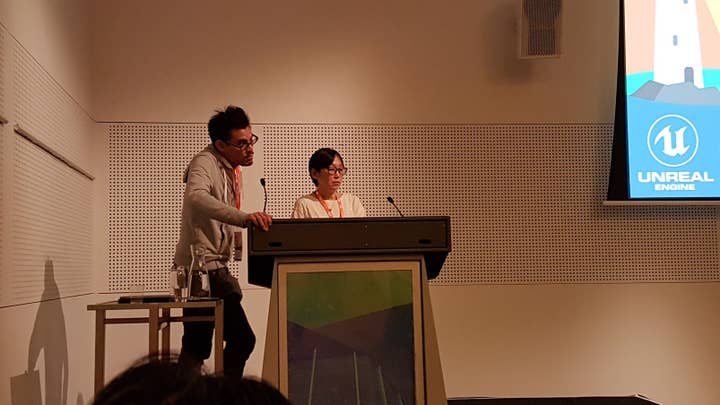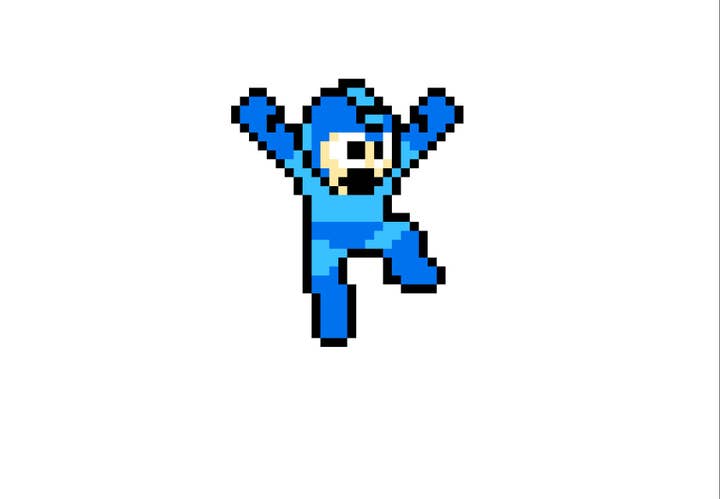"All I understood was the company wanted me to work, so I worked, worked, worked"
At Game Connect Asia Pacific, Mega Man composer Manami Matsumae described the shifting attitudes towards crunch in Japan
Attitudes toward crunch are changing in Japan, according to composer Manami Matsumae, who told the audience at Game Connect Asia Pacific about the long hours that were once the norm at the country's major publishers.
Matsumae is perhaps best known for her work on Mega Man at Capcom, the company where she started her career in the games industry in the '80s. That body of work -- which also includes scores and sound effects for more recent titles like Shovel Knight and Mighty No. 9 -- made her one of the guests of honour at Melbourne International Games Week.
Matsumae's talk at Game Connect Asia Pacific, one of the key events during Melbourne Games Week, included a section about the many ways the industry has changed since her days at Capcom. When she worked on games like Mega Man and Dynasty Wars, she said, sound and music were not added until late in the development of project, when time was running out, and the work had a tendency to pile up.
"I couldn't take any breaks even after a project was finished, because the next project would already be underway"
"The larger game companies out there planned their marketing and sales strategies in advance, so it's very difficult to make changes to specific dates and deadlines after they'd been decided," Matsumae said, as translated by Brave Wave Productions' Alexander Aniel. "When I was at Capcom I had to work on three to four games a year."
She added: "At Capcom, nobody would be able to work on any sound for a game until it was at least 50% complete... This ended up being the reason why I didn't end up taking any holidays at Capcom. I couldn't take any breaks even after a project was finished, because when the current project was 80% complete the next one would already be underway. I was obligated to move on to the next project, without taking any breaks."
While this kind of intense work will be familiar to anyone who works within or closely observes the games industry, the lack of any breaks between projects remains striking -- even companies that rely on crunch can give employees time off after a project is finished. Matsumae's experience certainly struck a chord with the GCAP audience, which asked about working conditions in the Q&A at the end of the session.
The Japanese industry, one audience member noted, is seen as having an "intense" work culture. What were Matsumae's coping strategies during that time, when she moved seamlessly from one game to the next without the opportunity to stop?
"In that time period, there was no real awareness that working too hard could be detrimental to you"
"When I worked at Capcom I did end up having to work a lot of hours," she replied. "But I think at this time, in that time period, there was no real awareness that working too hard could be detrimental to you. All I understood back in the day was the company wanted me to work, so I worked, worked, worked.
"As a company, Capcom actually allowed me to take holiday if I needed to, or take days off if I needed to do something. But at the time, my perspective was that work was just so busy that I couldn't take those holidays.
"In that sense, I think things have been changing... Japanese workers in the modern day are less attuned to that kind of work-dedicated approach. And people are less likely to be so devoted to their jobs, in terms of labour or hours worked. People are starting to change in that regard."

One of the prime factors in shifting attitudes towards crunch was the explosion of independent studios that followed the emergence of digital distribution platforms like Steam and the App Store. Indie developers still worked long hours, of course, but many who had done so at large companies now had the autonomy to ensure better working conditions for themselves and their staff.
When asked about the Japanese independent scene, Matsumae admitted that small studios of the kind that have proliferated on PC and console have struggled to gain visibility and funding. Alex Aniel, the translator, who also manages Japanese video game composers at Brave Wave, added his own perspective on the matter.
"Japanese workers in the modern day are less attuned to that kind of work-dedicated approach"
"If I may interject, since I work in the Japanese industry, it's definitely not as big or as visible as the indie scene is in the west, as we understand it," he said. "I think part of the reason is, number one, cultural -- the ordinary Japanese person is less likely to make themselves a prominent figure in the commercialisation of their game."
There are prominent counter examples at big companies in Japan, Aniel admitted, but even figures like Matsumae -- who isn't on the level of, say, Hideo Kojima in terms of her renown -- are "still in the minority in Japan."
"The other reason is funding has traditionally been a problem," Aniel continued, referring mainly to console and PC developers in Japan. "In the early part of this decade there has been a tendency for a lot of the best available funding to go into mobile and social games. And the products that come out tend to be centred towards the domestic market, so you wouldn't have much reason to hear about them."
Matsumae offered one game as an example of the indie scene in Japan: Nigoro's La Mulana, a Japanese production that was made possible (in great part) by investment from a western company. This, too, is changing, Matsumae said, as Japanese developers seeking more autonomy in their careers become more adept at finding sources of support and funding.
A big part of that shift is the rise of BitSummit, the annual event in Kyoto that has given the country's independent game creators a focal point and a platform from which to build.
"This has allowed, for the first time, indie developers from Japan to get together, and have an event centred on the things they make," Matsumae said. "Thanks to things like BitSummit, we're now in a situation where there's more potential to really build up the Japanese indie game industry."
GamesIndustry.biz attended Melbourne International Games Week as a guest of Creative Victoria.

